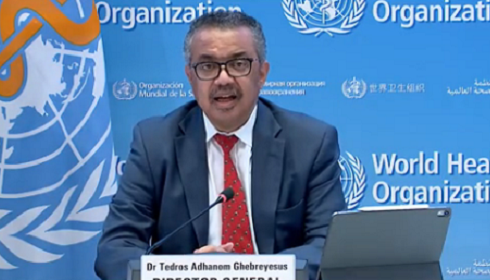
WHO Director-General Calls for Peace Amid Global Conflicts
A United Nations team in Yemen attempted to negotiate the release of arrested humanitarian workers during Christmas week in 2024, providing a harsh reminder of the connection between health and violence. The expedition, which included meetings with Yemen's de facto authorities, aroused cautious optimism for the release of the unjustly held UN and partner organisation employees.
Unfortunately, an Israeli-led aircraft attack on Sana'a airport thwarted this ambition. The attack resulted in unnecessary casualties and disruption, destroying a vulnerable situation. It also emphasised the growing risks facing civilians, health professionals, and humanitarians in conflict zones around the world.
"This must stop," said the WHO Director-General in response to the atrocity, calling for immediate action to save lives and restore calm. "From Gaza to Sudan, Yemen to Ukraine, Haiti, and beyond—peace is and will always be the best medicine for the health and well-being of all people everywhere," the WHO chief stated, emphasising the inextricable relationship between peace and global health equity.
Despite these hurdles, the World Health Organisation (WHO) remains committed to its purpose, "Health for All." Significant advances in global health over the last year have demonstrated WHO's commitment to this principle. Breakthroughs in the fight against malaria and neglected tropical illnesses stood out, with several nations reaching eradication milestones. The introduction of a new malaria vaccine in 17 African countries was a watershed moment in the fight against malaria.
Furthermore, improvements in dengue vaccine development, as well as certification of mpox vaccines and testing, demonstrate WHO's proactive commitment to emerging health concerns. The Expanded Programme of Immunisation saved an estimated 154 million lives, demonstrating WHO's commitment to equitable access to life-saving measures.
Global health security also made significant strides, with better adherence to International Health Regulations improving pandemic preparedness and response. Public health lobbying scored notable triumphs, including a drop in worldwide tobacco usage, which contributes to healthier populations.
The construction of the WHO Academy in Lyon, with the cooperation of French President Emmanuel Macron, was a key component of WHO's activities this year. This organisation seeks to train healthcare professionals worldwide and prepare them to solve major health issues.
While these milestones reflect significant progress, the WHO recognises that maintaining global health security and protection against future pandemics will necessitate increased efforts throughout 2025 and beyond.
As World Health Day 2025 approaches—coinciding with the WHO's 77th anniversary—the organisation is concentrating on maternal and child health issues. The Director-General of WHO urged world leaders to seize the opportunity presented by the New Year. "Let us not pass up the chance that the New Year will provide us. "Please let us turn the page on conflict, forge a new path to long-term peace, and ensure a healthy and prosperous future for all," the WHO chief added.
The events in Yemen are a stark reminder of the vital link between peace and health. The WHO's unwavering commitment to achieving health equity and resilience exemplifies a universal truth: peace is still the most important prescription for a better, safer world.